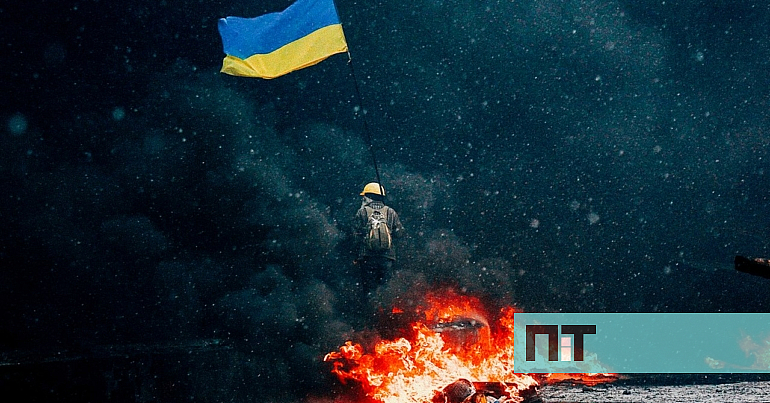Essential Netflix Documentary for Understanding the Russo-Ukrainian War
Winter on Fire was nominated for an Academy Award and takes us back to the three-month revolution that took over Kiev’s main square in 2014.
Accurate parallelism can be done today. Eight years and four days ago, on February 20, 2014, the main square in Kiev, Ukraine, was at the center of social unrest. “This is the Ukrainian Revolution,” a Ukrainian child said to the camera while being photographed by another teenager. “It’s fun,” he adds.
Wearing an apparent impromptu protective outfit, the young man points to a deserted body amidst the chaos. I was dragging the body. stepped on the blood. Nothing surprises me.” You may not have been born yet when Ukraine liberated from the Soviet Union in 1991 and finally declared its independence. But he is the first protagonist of a Netflix documentary, “Winter on fire”Which brought to the world the best images of the so-called revolution of dignity.
The documentary that premiered in 2015 is still in the streaming platform’s catalog and is more current than ever. Many point to the popular revolution as one of the reasons for the conflict with Russia, especially after changes in the Ukrainian political spheres of power.
Before the Ukrainian people took over the main square of the capital, the same had already happened exactly ten years ago, in 2004, with another revolution, the Orange Revolution. In that year of the presidential election, Viktor Yanukovych faced Viktor Yushchenko. The win was handed to the first with an advantage of only 0.76 percent of the vote, leading to a second round. Yanukovych won again, this time by more than three percentage points.
But national and international observers quickly sounded the alarm: there were serious doubts that the results could be tampered with. Thousands descended on the main square in Kiev and demanded a transparent decision. The scrutiny led to a re-election. Yushchenko won – even after he was poisoned, apparently in an attempt on his life – but it won’t be Yanukovych’s farewell.
The Ukrainian politician will return to the race in 2010, face to face with one of the leaders of the Orange Revolution, Yulia Tymoshenko. In a close fight, Yanukovych would win the election with a minimum advantage of three points, with support mainly in the eastern region of the country, and more focused on Russia.
Four years later, Ukraine is more European than ever, especially in the western regions. The European Union prepared a trade agreement that would bring the former Soviet country to the West. But in the last moments, Yanukovych retreated, rejected the deal and moved in the opposite direction, towards the sphere of influence of the Kremlin. People, especially young people, were angry. Slowly, a peaceful demonstration centered on the square, Kiev Square, the usual platform for mass movements.
It is in this context that begins the documentary, which earned an Oscar nomination for Best Documentary Feature in 2015. The Ukrainian authorities, led by Yanukovych.
Much has been discussed about the involvement of external agents and neo-Nazi groups, but the people’s room record, with the latest edition by Yevgeny Avinevsky, shows that the resistance was carried out by citizens who never imagined themselves in a conflict situation. Depending on the circumstances, they found themselves in the role of improvised soldiers on the front line. College students and veterans gathered to protest the secret deal designed in collusion with Vladimir Putin.
In the face of protests that resisted everything that the government military force threw at them, Yanukovych would end up resigning from office. But it won’t be the end of the story.
Winter on Fire is not to be missed in itself, but even more so because it sheds some light on the current context in Ukraine, which is under attack by Russian military forces. In addition to providing appropriate historical context, it serves as a visual and emotional guide to a type of revolution rarely seen: one that every participant captures, with little left to say and document.
It is documented evidence of alternative facts and censorship. Almost all of the photos were taken by the revolutionaries on the front lines, with a mobile phone in one hand and stones in the other. For the students, workers, and old people, who had gathered in the square for more than three months, it was the moment of truth and the moment of all decisions being made. However, it wouldn’t be the last time they would have to fight for freedom.

“Infuriatingly humble analyst. Bacon maven. Proud food specialist. Certified reader. Avid writer. Zombie advocate. Incurable problem solver.”

